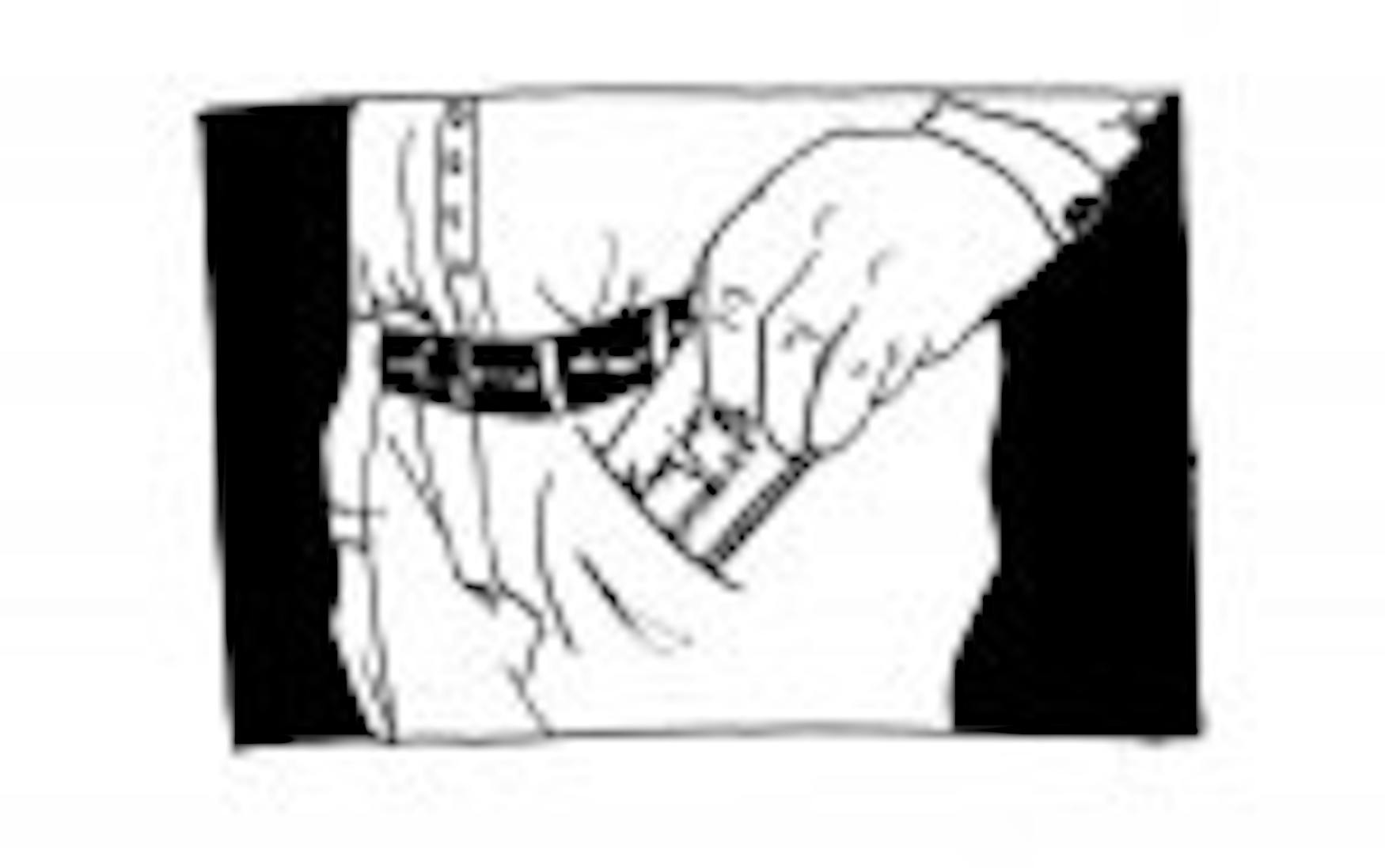Overdose treatment drug is a stopgap, not a solution
Every day in the United States, 6,748 people are treated for drug overdoses in emergency rooms across the country, according to the Center daily for Disease Control. Another 105 die daily from these overdoses.
In order to combat this problem, the Food and Drug Administration approved a hand-held device last Thursday that can be prescribed to and used by families and friends of drug abusers in case of an overdose, according to the New York Times.
The device is called Evzio, and has a concept similar to that of an EpiPen. It can be carried around in a pocket or a purse, and is administered to those who are unconscious and have stopped breathing as a result of opioid drug abuse, according to the New York Times. Opioids are a category of chemicals that include opiates and synthetic substances, and are one of the groups of drugs commonly prescribed as painkillers. Heroin is an opioid, as are oxycodone and morphine.
Evzio contains naloxone, a drug that can counteract the effects of opioids and is already carried in hospitals, but being so far removed from the patient, it is often too late for it to be used. Although the administration of naloxone from Evzio does not make additional treatment unnecessary, it does buy some crucial time for the patient and ultimately has the potential to save many lives.
But Evzio comes with a long list of complications. To begin, how does one decide who can get a prescription for it and who can administer it?
According to the New York Times, some states have administered pilot programs to let emergency medical workers or those who witness a drug overdose use the device.
The article also seems to imply the intent for a widespread distribution of Evzio, reaching out to family and friends of drug abusers. But these programs still leave open questions as to how one would obtain a prescription for such a device.
Additionally, there is not yet an industry price set for Evzio, and to be effective, it would need to be affordable for those who would need it. This further brings up the issue of whether or not Evzio would be covered by insurance companies.
Beyond the legal and technical issues surrounding the distribution and use of Evzio, it needs to be noted that this treatment does not hit the crux of the issue at hand. Drug abuse is one of the most preventable causes of death and hospitalizations. Unlike a congenital defect or an environmental hazard, one needs to somehow be able to obtain the opioid on which they overdose.
Opioids come in many forms, including heroin and prescription drugs; one of the major sources for obtaining opioids is from prescriptions written by doctors.
In order to really make a difference and effectively save lives from drug overdoses, policies need to focus on primary prevention, which, in this case, would prevent people from obtaining illegal opioids in the first place.
Yes, this is a great drug that saves lives, but it is also a drug that can overshadow the root of the issue and lead people away from getting further help. If people could not get the opioids to abuse, it would be impossible to overdose on them, and there would be no need for Evzio.
Although this is an improbable and ideal situation, there are still measures that can be taken to decrease the amount of opioids prescribed and used. Additionally, even moving the focus to helping those who are abusing drugs before they overdose would reduce the occurrences of overdoses.
Although there is currently a necessity for Evzio and it can be used to save lives, it does nothing to prevent the causes of drug overdose as a societal problem, and may even work toward the opposite. Being able to carry around an EpiPen-like device that can be used to save lives during an overdose may lead to a false sense of security.
It may lead people to be less careful with regard to how much of the drug they're using. Evzio does nothing to discourage opioid abuse.
Additionally, those whose lives have been saved by Evzio may end up overdosing again and again, since there is no system in place for any sort of preventative measure. While the importance of Evzio in instances of overdose should be noted, it should be used as part of a treatment plan rather than just a backup plan.
One solution that could be implemented is some kind of mandatory counseling that comes with the prescription of Evzio. This would make Evzio part of an overall treatment process rather than simply a backup plan for when an overdose occurs. Additionally, there should be mandatory training on the underlying issues surrounding Evzio for doctors who prescribe the drug.
We must also take stricter measures when prescribing opioids and doctors who prescribe them should go through additional training to learn about alternative pain treatment methods.
While Evzio does have benefits, it is not any kind of solution to drug overdosing. There are too many complications about how it would be distributed, and it doesn't provide any sort of preventative measure against opioid overdose.
The benefits are short-term, and the real issue at hand has gone untouched. At the end of the day, Evzio will save lives, but it will not help fix any problems surrounding opioid abuse.
*




Please note All comments are eligible for publication in The Justice.